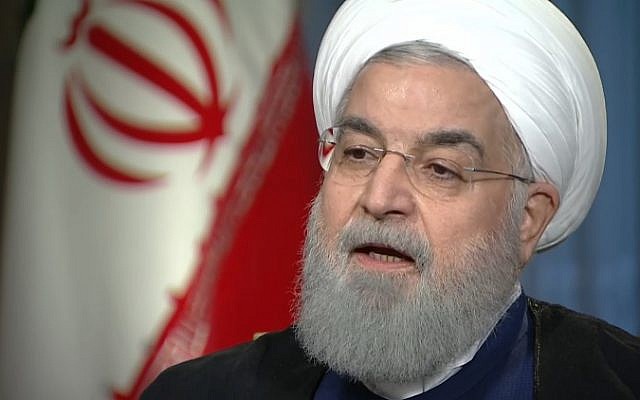In defiance of the US, the European Union urged its companies to continue and even bolster trade with Tehran, despite American threats of sanctions against them for doing business.
EU diplomatic chief Federica Mogherini said the bloc, as well as Britain, France and Germany, deeply regretted Washington's move.
"We are determined to protect European economic operators engaged in legitimate business with Iran," she said. "We are encouraging small and medium enterprises, in particular, to increase business with and in Iran."
Mogherini noted the Iranian government had fully lived up to its commitments under the landmark 2015 nuclear agreement, which the administration of US President Donald Trump pulled out of in May.
Rouhani praised Europe for "resisting the Americans" in its call "to join the regime of sanctions".
But many large European firms are leaving Iran for fear of US penalties, after Trump warned of "severe consequences" against companies and individuals that continue to do business there.
'Stab with a knife'
Rouhani told state television on Monday night that Iran had no intention of negotiating a new deal with the United States.
"If you're an enemy and you stab the other person with a knife, and then you say you want negotiations, then the first thing you have to do is remove the knife," he said. "They want to launch psychological warfare against the Iranian nation. Negotiations with sanctions doesn't make sense."
Trump issued a statement as the clock ticked down on Monday saying Tehran must curb its missile programme and end its "support for terrorism".
"The Iranian regime faces a choice," Trump said in a statement. "Either change its threatening, destabilising behaviour and reintegrate with the global economy, or continue down a path of economic isolation."
"I remain open to reaching a more comprehensive deal that addresses the full range of the regime's malign activities, including its ballistic missile programme and its support for terrorism."
Iran's economy 'undermined'
The reimposed sanctions target a range of sectors, blocking Iran from purchasing US banknotes and trading in gold and metals.
They will also limit Iran's access to the software and automotive sectors, while blocking its ability to buy commercial aircraft or trade in food and other goods as well.
Even more punishing sanctions targeting Iran's massive oil industry will take effect on November 5.
Ahmad Majidyar, director of IranObserved Project at the Middle East Institute, said even before the sanctions took effect, Iran's vulnerable economy had already been undermined by the US withdrawal from the nuclear deal.
The Iranian people will be the ones to suffer most from the new sanctions, analysts say. Iran's currency has lost about half its value since Trump announced the US would withdraw from the nuclear pact.
"Over the recent months, the Iranian currency has been in freefall; inflation has been soaring; unemployment has been increasing; and, most importantly, people have lost hope," Majidyar told Al Jazeera.
"In anticipation of the sanctions, a lot of Iranian business people have transferred their assets and capital abroad, so that's why the economic situation has already been deteriorating."
The impact of the return of sanctions has ramped up tensions inside Iran, which has seen days of protests and strikes in multiple towns and cities over water shortages, high prices, and wider anger at the political system.

US threats
Under the breakthrough deal in Vienna in 2015, the Iranian government agreed to cut down its uranium stockpile and scale back its enrichment programme far below the level required to build a nuclear weapon.
Tehran also agreed in perpetuity to notify United Nations inspectors if and when it builds a new nuclear facility.
In exchange, United Nations-approved sanctions were lifted in January 2016, and Iran was allowed to resume trading oil and gas on the international market. A total of $100bn in frozen Iranian assets was also released.
The US was an original signatory to the agreement with Iran, along with Britain, France, Germany, Russia, China and the EU.
At the time, under then-president Barack Obama, Washington had pledged to waive secondary US sanctions as long as Iran continued to abide by the agreement.
But Obama's successor Trump pulled out of the pact on May 8, fulfilling a 2016 campaign promise to withdraw from a deal he once described as the "worst ever".
The US sanctions not only target American companies with operations in Iran, such as GE and Honeywell, but foreign companies with operations in both Iran and the US, such as French oil giant Total, could also be held liable if they choose to stay in Iran.

Majidyar noted the threat of sanctions had already forced major international companies and banks to scale down their activities in Iran.
"Although the Europeans are trying to solve the Iran nuclear deal and continue to do business with Iran, ultimately banks and companies do not listen to the government, they make their own decisions," he said.
"And because of the fear of the US sanctions, they would be very reluctant to invest in Iran or do business with Tehran after this."
Al Jazeera
More about: Iran
















































